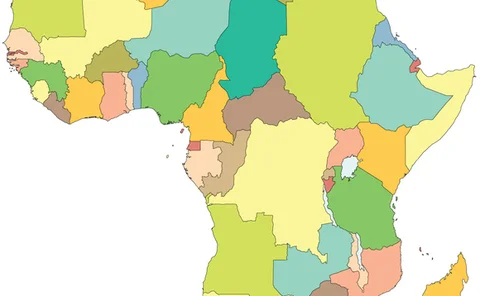Research
Colombian paper analyses relationship between term premia in US and Latin America
Brazil and Colombia are the Latin American countries with the largest responses to changes in the US term premium, according to research published by the Central Bank of Colombia
Richmond Fed article questions use of dove and hawk to describe policy-makers
Article in Richmond Fed’s economic magazine argues the terms simplify the disagreements on the FOMC; says the idea of a split between two camps is ‘likely to persist’
Riksbank research gives alternative finance a cautious welcome
Greater diversity of funding sources stands to bring major benefits to the real sector, but financial stability could be at risk if new products are not well understood
Capital markets union must be carefully focused, say BoE researchers
Paper puts forward framework for analysing the myriad proposals under the umbrella of ‘capital markets union’, and argues they should be more targeted
Czech paper finds mixed evidence of spillovers from ECB unconventional policies
Impact of spillovers depends on whether the policy is conventional or unconventional, and has a larger impact on inflation than on growth, working paper finds
Paper tackles US inflation puzzle with new Phillips curve
Authors of research published by IMF find core inflation movements can be explained by anchored expectations and short-term unemployment “stories”
Spanish paper finds relationship between number of lawyers and litigation rates
Working paper published by Bank of Spain warns not to read too much into results, but finds they are useful in conducting a ‘preliminary’ evaluation of recent reforms
Research promotes regional approach to financial stability in Asean
IMF working paper says it is ‘equally important’ as regulatory harmonisation; sees potential for vulnerabilities as countries with lower credit-to-GDP ratios catch up with their neighbours
Italian paper: Reforms could lead to earlier exit from ZLB
Working paper examines the impact of competition-friendly reforms in the service sector across the eurozone, finding it could help boost inflation providing investment responds
Richmond Fed paper examines triggers for contingent capital conversion
Working paper finds the desirability of a regulator or fixed-price mechanism depends on the effect the conversion has on the value of equity to the incumbent owners
BoE research finds high-frequency trading makes prices more efficient
High-frequency trading, although correlated, appears to be based on information and therefore helps markets form prices efficiently, working paper finds
Bank structure affects macro-prudential spillovers, BoE research finds
Working paper finds macro-prudential policies spill across borders more readily to bank branches than subsidiaries, although the change depends on type of lending and type of policy
NBER paper finds shareholder protection dampens crises
Stock markets provide emergency source of funding during banking crises, and the shock-absorbing effect is stronger if shareholders are better protected, working paper finds
Bank of Canada research underscores need for securitisation reform
Working paper warns asymmetric information impairs market functioning and means risk-sharing is not enough to efficiently allocate securitisations
IMF paper finds weak link between Islamic banking and financial inclusion
Empirical link between Islamic banking and financial inclusion ‘tentative and relatively weak’; researchers suggests ways financial inclusion could be better served by sharia-compliant banks
BIS paper finds stabilisation policy can impact long-run growth
Use of short-run interest rates has implications for long-run growth due to their effect on credit and liquidity supply, BIS working paper finds
Minneapolis Fed research criticises China's 'quid pro quo' policy
Staff report finds ‘significant impact’ on innovation and welfare from China’s continued policy of exchanging market access for technology – good for China, but not for advanced economies
Banque de France paper tackles ‘elasticity of poverty’
Researchers examine the extent to which growth in different sectors translates into a reduction in poverty for countries in Africa; commodity-driven economies particularly bad for the poor
BoE paper identifies issues in measuring ‘too big to fail’
Research assesses different approaches to measuring the scale of the ‘too big to fail’ problem, and finds none is without issues, but different approaches still identify effects
IMF paper tackles puzzle of asset bubbles in efficient markets
Working paper suggests business risk for asset managers creates institutional herding and ‘rational bubble-riding’, with implications for the design of macro-prudential policies
BIS paper asks why bank and central bank rates diverged post-crisis
Authors argue direct comparison of commercial and central bank interest rates is misleading; the relationship between the two has remained stable but funding costs have risen
Dutch paper finds global banking system has adopted ‘a more regional focus’
Researchers say global banking has not become more fragmented, but has undergone some ‘important transformations’ since the crisis
Ageing population may boost inflation, BIS paper finds
Working paper challenges received wisdom that an ageing population causes disinflation, with implications for the correct calibration of monetary policy
ECB publishes new economic bulletin
The first in the new series, introduced to ‘mirror’ new governing council meeting cycle, features an assessment of the Chinese economic outlook


















